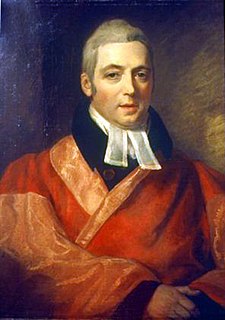Life
Jackson was a wine merchant of the Vintners' Company, at 31 Clement's Lane, City of London by 1785. [1] He travelled to India on business; and on 4 May 1797 left Bombay by country ship for Bassora on his way home. He went by way of the River Euphrates and River Tigris to Baghdad. His route then took him through Kurdistan, Anatolia, Bulgaria, Wallachia, and Transylvania. He reached Hamburg on 28 October 1797. [2]

The City of London is a city and local government district that contains the historic centre and the primary central business district (CBD) of London. It constituted most of London from its settlement by the Romans in the 1st century AD to the Middle Ages, but the agglomeration has since grown far beyond the City's borders. The City is now only a tiny part of the metropolis of London, though it remains a notable part of central London. Administratively, it forms one of the 33 local authority districts of Greater London; however, the City of London is not a London borough, a status reserved for the other 32 districts. It is also a separate county of England, being an enclave surrounded by Greater London. It is the smallest county in the United Kingdom.

Baghdad is the capital of Iraq. Located along the Tigris River, the city was founded in the 8th century and became the capital of the Abbasid Caliphate. Within a short time of its inception, Baghdad evolved into a significant cultural, commercial, and intellectual center for the Islamic world. This, in addition to housing several key academic institutions, as well as hosting multiethnic and multireligious environment, garnered the city a worldwide reputation as the "Centre of Learning".

Kurdistan or Greater Kurdistan is a roughly defined geo-cultural historical region wherein the Kurdish people form a prominent majority population and Kurdish culture, languages, and national identity have historically been based. Kurdistan roughly encompasses the northwestern Zagros and the eastern Taurus mountain ranges. The territory corresponds to Kurdish irredentist claims.
Jackson was elected Fellow of the Society of Antiquaries of London on 2 February 1804. He died in 1807. [2]

The Society of Antiquaries of London (SAL) is a learned society "charged by its Royal Charter of 1751 with 'the encouragement, advancement and furtherance of the study and knowledge of the antiquities and history of this and other countries'." It is based at Burlington House, Piccadilly, London, and is a registered charity.








